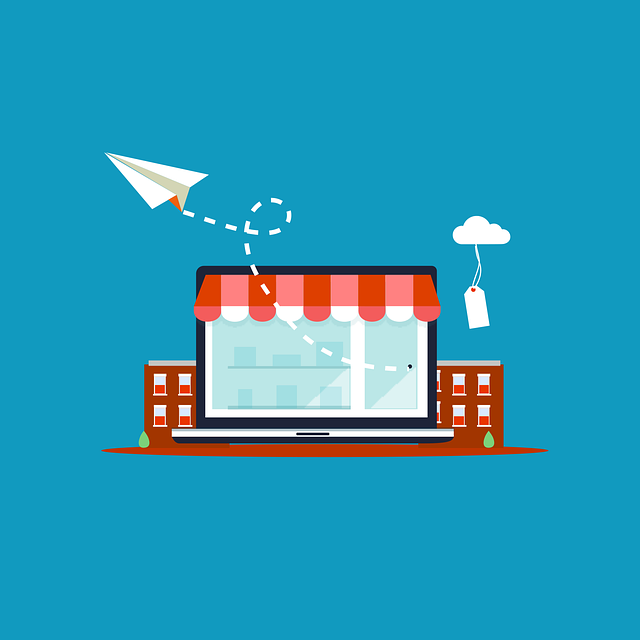AI agents for marketing automation revolutionize business engagement by automating tasks, analyzing customer behavior, and providing personalized outreach. They enhance efficiency, handle 24/7 support, and improve lead scoring through advanced algorithms and machine learning. These intelligent systems streamline processes, boost conversion rates, and offer customized solutions tailored to specific business needs, leveraging NLP and sentiment analysis. However, integration requires addressing data privacy, security, and human oversight for optimal benefits.
In today’s competitive landscape, businesses are increasingly turning to AI agents for marketing automation to gain a significant edge. These intelligent assistants are revolutionizing how companies engage with leads, particularly through automated follow-up and advanced lead scoring. This article explores the transformative power of AI agents in streamlining marketing processes. We’ll delve into their functionality, the art of efficient follow-ups, and the science behind lead scoring. Additionally, we’ll discuss the benefits and challenges, providing insights for businesses considering this game-changer technology.
- Understanding AI Agents for Marketing Automation
- How AI Agents Automate Follow-Ups Efficiently
- Lead Scoring: AI's Role in Prioritizing Prospects
- Benefits and Challenges of Implementing AI Agents
Understanding AI Agents for Marketing Automation

AI agents for marketing automation are transforming how businesses engage with their customers. These intelligent systems leverage advanced algorithms and machine learning to automate various tasks, from initial customer interactions to follow-up communications. By understanding customer behavior patterns and preferences, AI sales agents can personalize outreach, increasing engagement and conversion rates.
The integration of chatbot automation within these AI agents further enhances efficiency. Chatbots can handle routine inquiries, providing instant responses and freeing up human agents to focus on more complex issues. This not only improves operational effectiveness but also allows businesses to deliver 24/7 support, adapting to the fast-paced digital landscape where immediate customer service is paramount.
How AI Agents Automate Follow-Ups Efficiently

AI agents for marketing automation have transformed the way businesses handle follow-ups and lead scoring. These intelligent assistants can efficiently manage repetitive tasks, such as sending personalized emails or messages to potential customers, tracking interactions, and analyzing customer behavior. By leveraging machine learning algorithms, AI chatbots can predict customer needs and preferences, ensuring that every communication is relevant and timely.
The automation provided by AI agents goes beyond simple task execution. They can learn from past interactions, adapt their strategies based on customer responses, and continuously improve lead scoring models. This not only enhances the overall marketing strategy but also saves significant time and resources for businesses, allowing them to focus on more strategic initiatives. An AI automation agency can further optimize these processes by customizing solutions tailored to specific business needs, leveraging advanced technologies like natural language processing and sentiment analysis to deliver exceptional results.
Lead Scoring: AI's Role in Prioritizing Prospects

AI has transformed marketing strategies, especially when it comes to lead scoring, a critical aspect of customer relationship management (CRM). By leveraging machine learning algorithms, AI agents for marketing automation can analyze vast amounts of data from various sources to create detailed prospect profiles. This involves assessing behavior patterns, interactions with marketing materials, and demographic information, enabling marketers to prioritize leads effectively.
The role of AI in lead scoring is twofold: it automates the process, freeing up valuable time for sales teams, and it enhances accuracy by removing human bias. With an ai workflow in place, businesses can quickly identify high-potential leads, focus their efforts on qualified prospects, and ultimately improve conversion rates. An ai automation agency specializing in these solutions can help organizations harness the power of AI to streamline their marketing and sales processes, ensuring a competitive edge in today’s data-driven market.
Benefits and Challenges of Implementing AI Agents

Implementing AI agents for marketing automation brings a myriad of benefits to businesses. These intelligent chatbots can handle repetitive tasks like follow-ups and lead scoring with remarkable efficiency, freeing up valuable time for marketing teams. They ensure consistent communication, enabling round-the-clock engagement with potential customers. Moreover, AI agents can analyze vast amounts of data, providing insightful recommendations on customer behavior and preferences, thereby enhancing the overall marketing strategy. With their ability to personalize interactions, these chatbots create a more engaging and tailored customer experience, increasing conversion rates significantly.
However, challenges exist when integrating AI agents into marketing workflows. Data privacy and security are paramount concerns, as these chatbots handle sensitive customer information. Ensuring robust data protection measures is essential to build trust with clients. Additionally, training the AI models to understand complex client queries and nuances of language can be intricate. Human oversight and continuous fine-tuning are often required to improve accuracy and prevent misunderstandings. Despite these challenges, with careful planning and strategic implementation, AI agents offer a transformative opportunity for businesses to streamline their marketing efforts and deliver exceptional customer experiences.
AI agents are transforming marketing automation by streamlining processes like follow-up communications and lead scoring. These intelligent systems excel at efficient task management, allowing marketers to prioritize prospects more effectively. By leveraging AI for these crucial aspects, businesses can optimize their sales pipelines, enhance customer relationships, and ultimately drive growth in today’s competitive landscape. Integrating AI agents into marketing strategies is not just a trend but a strategic move that offers significant benefits when implemented thoughtfully.
